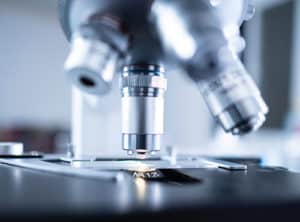Atkins diet
What is Atkins?
Atkins diet is a low-carbohydrate diet developed by cardiologist Robert Atkins in the 1970s, which he himself advertised as claiming that carbohydrate control is crucial for weight loss and that it is possible to stay thin by eating forever. high calorie products. To promote the diet, Atkins' Diet Revolution was published in 1972 and became one of the 50 best-selling books in U.S. history, and Atkins founded Atkins Nutritionals, Inc., which sold low-carb bars, cocktails, and snacks.
The diet became very popular in the early 2000s, with almost one in 10 North American adults claiming to follow it (1 in 11). Robert Atkins died in 2003, and in 2005 Atkins Nutritionals, Inc. filed for bankruptcy after significant financial loss.
Today we offer 3 different Atkins diets - Atkins 20® with 20g carbohydrate intake per day, Atkins 40® with 40g carbohydrate intake per day and Atkins 100 ™ with 100g carbohydrate intake per day.
According to the Atkins diet guidelines, you can eat anything - steaks, fish, poultry, bacon, eggs and cheese - as long as you want to limit your carbohydrates.
For example, one of the promises in the advertisement is this: “Bacon and eggs for breakfast, smoked salmon with cream cheese for lunch and steak made in butter for dinner - sounds like a weight loss menu? Too good to be true? If you like these dishes and aren't a carrot lover, Atkins may be right for you. ”
The goal of the Atkins diet is to change your metabolism - to use stored body fat for energy, not carbohydrates. In principle, this is possible, but not for everyone, and can be associated with serious health problems.
Atkins 20® (Atkins classic diet) is essentially Keto deta with all its consequences. It has four phases, starting with a drastic reduction in carbohydrates and gradually becoming "lighter":
- Phase - a maximum of 20g of carbohydrates per day. The weight drops rapidly as water is removed from the body. For comparison - a medium-sized banana contains about 24g of carbohydrates, but potatoes - about 30g.
- Phase - a maximum of 30g of carbohydrates per day. You will still lose weight, although not as fast as in the first phase. This phase lasts until you reach or are close to your target weight.
- Phase - The maximum amount of carbohydrates per day is gradually increased - by 10g every week. You will gradually increase your carbohydrate intake until your weight stabilizes (up to a maximum of 120g of carbohydrates per day).
- Phase - up to 120g of carbohydrates per day. This is the maintenance phase, which is followed while your new weight remains the same.
Benefits of the Atkins diet
- Protein and fat suppress appetite - so hunger is less pronounced compared to others fast diets. If you definitely want to follow a diet - this can be a big plus, but from experience I can say that eating a balanced diet almost does not cause hunger - many of my the participants in the challenge even say that they cannot eat everything intended for them.
- By restricting carbohydrates, you automatically give up many unhealthy foods - white flour products, sweetened carbonated drinks and packaged juices, semi-finished products, Fast Food, etc. This is a very important plus, because with these products we consume too many calories, without even realizing it - especially with sweetened carbonated drinks and packet juices. The exclusion of semi-finished products (processed foods) is also to be welcomed, as they often absorb too much salt and fully synthetic substances (in the form of synthetic food additives) that our bodies do not recognize and therefore cannot remove, so they accumulate and can cause health problems in the future.
Risks associated with the Atkins diet
- Allows cooked and fatty meats that may increase the risk of cardiovascular disease, osteoporosis and some cancers (low in carbohydrates and high in fat).
- Does not include healthy food - the consumption of fruits and some vegetables is restricted in order not to exceed the carbohydrate limit. These foods contain vitamins, minerals, phytochemicals and fiber that are important for our body. The exclusion or restriction of these product groups may lead to nutrient deficiencies and consequent health problems.
- There are side effects: a very low carbohydrate diet can lead to electrolyte imbalance, constipation, dangerously low blood sugar and kidney problems. Headaches, dizziness and increased fatigue, increased irritability and rapid mood swings have also been reported.
- Bars, cocktails and ready-made snacks "to help you follow the Atkins diet" are offered to promote the attraction and addiction of dieters. Many of these products also contain artificial sweeteners, preservatives, emulsifiers, flavor enhancers, high levels of saturated fat and sodium, which will not benefit your health.
- The long-term benefits are questionable due to the lack of studies on the long-term effects of diet on human health (all available studies have been performed in less than a year or two).
The Atkins diet is definitely not to be followed, if you have diabetes or any other health problems, if you are pregnant, breast-feeding or if you have any kidney problems. Be sure to talk to your doctor before starting a diet.
Key takeaways
In the short term, low carb diets cause more water loss in the body than the loss of body fat, as carbohydrate intake is reduced and water is artificially expelled accordingly. But the weight of the water recovers when the diet ends. So, the million-worthy question - do you want to lose weight (water), which diet will eventually recover, or maybe fat?
Prolonged adherence to the Atkins diet also leads to loss of body fat, but there is no evidence that the diet is effective in achieving sustainable weight loss - it is unbalanced because it promotes unlimited protein and saturated fat intake, respectively - long-term adherence can cause kidney problems and increase the risk of heart disease.
Share this article
Follow me on Facebook
I recommend reading these articles as well

Myths about slimming
Do Apple Cider Vinegar and Green Tea Really Help You Lose Weight? Is dark chocolate healthier than milk chocolate and are sports drinks necessary for anyone who sports?

Functional workouts
What is a functional workout (or fitness)? How do Functional Workouts differ from other types of exercise? What are the benefits of Functional Training?

Is intermittent or continuous weight loss better?
Many slimming people often choose not the most effective method to achieve their goals. That is, they do not really understand how better it would be: to lose weight with short breaks, or to be "on a diet" with a kcal deficiency all the time?

Diet - a campaign or a way of life?
How are short-term slimming campaigns different from lifestyle changes?

